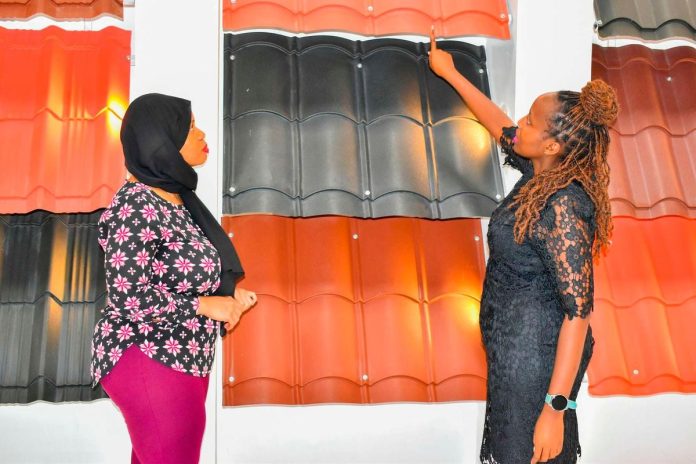Growing up in a household where her mother had an 8am-5pm job, while her father, being a businessman, at times worked very odd hours and other times he did not work at all, Caroline Munyoki knew in whose footsteps she would want to follow when she grew up.
She found her father’s irregular routine confusing, and therefore never saw herself venturing into business. Her mother’s routine schedule, however, was more assuring.
“We never thought our dad had a real job, even though whenever we needed something, our mother would refer us to him,” noted Caroline during an interview with Powering SMEs.
After completing her degree in Business Information Technology, she therefore opted to pursue a career in banking. As a teller, she would report to work every day at 7am and leave at 6pm.
The environment was very controlled, with lots of targets to meet. As much as she appreciated the steady paycheck, she began to also appreciate the advantages of being in business, such as freedom, for instance.
In the year 2015, she and her husband decided to start a hardware, leveraging the network she had built as a bank teller to form a customer base.
“We did this for two years, then discovered a major gap in roofing materials. Most suppliers we found had serious challenges with the supply, inconsistency with colours, and poor quality. I recall selling roofing sheets to a contractor who returned three months later to find the iron sheets had faded,” says Caroline.
The case was not unique. Many other customers raised similar concerns, but when they raised the matter with their supplier, the supplier was unresponsive.
“By this time, my partner and I had fully decided that this would be our next venture. We wanted to be the solution. We decided to get a consultant in order to have an in-depth understanding of the industry, did a bit of benchmarking in Kenya, South Africa, and Japan, and started our operations in 2017,” explains the entrepreneur.
Since they did not have the capacity, they would start by producing a single roofing profile. They acquired a machine for this and employed a team of 10 to work as technicians and product marketers.
Starting out, business was not easy. The couple wanted to offer high-quality materials, but the raw materials were expensive, making the end product expensive.
Their competitors, however, would sell lower-cost products either because they had the capacity to purchase raw materials in bulk, or simply because they sourced for cheaper, lower-quality materials.
“Business is no walk in the park. We’ve suffered some lawsuits along the way, from competitors who originally thought we came to steal their customers. They also claimed that our products were similar,” says Caroline.
The entrepreneur, however, notes that maintaining their standards paid off, as they were able to get customers who would comfortably refer them to their own circles, seeing that their products remained in good condition after years of use.
From a single machine, they were able to add six more machines, enabling them to produce more than six different aluminium and zinc-coated roofing profiles and accessories. These could vary in length from a metre up to 13 metres, depending on a client’s preference.
The firm currently employs about 100 staff, the majority of them women. They have won several awards in the industry, including the best e-commerce platform for roofing materials in the year 2021. Individually, Caroline was featured in the 2023 TOP40UNDER40 Women in Business. Though proud of how far they have come, they admit that it still is not easy.
“We import a lot of our raw materials, which means we use the dollar in a lot of our transactions. Our local currency has not been doing very well against the dollar and any slight movement of the forex has a huge impact on our business,” notes Eric Baru, the head of sales and marketing at Imarisha Mabati.
He says getting customers to adjust to the new realities is always a challenge because their major competitors have the capacity to import large consignments at once in anticipation of global shocks, thus being able to offer products at a low rate.
He also says trust is still an issue, especially for the online arm of their business, because of the negative experiences people have had in the real estate industry, some of which have been publicised in the media.
“People have heard of cases where someone sends money from the diaspora for instance to build a house, only for them to come home and find nothing. But the awards and recognition we’ve received are getting people to believe in our brand,” noted Baru.
With plans to venture into the rest of East Africa soon, Caroline encourages women to venture into the construction industry, because the challenges and the opportunities there are the same for both men and women.
nation.africa
https://nation.africa/kenya/business/enterprise/-challenges-and-opportunities-in-running-a-roofing-business–4394930
















